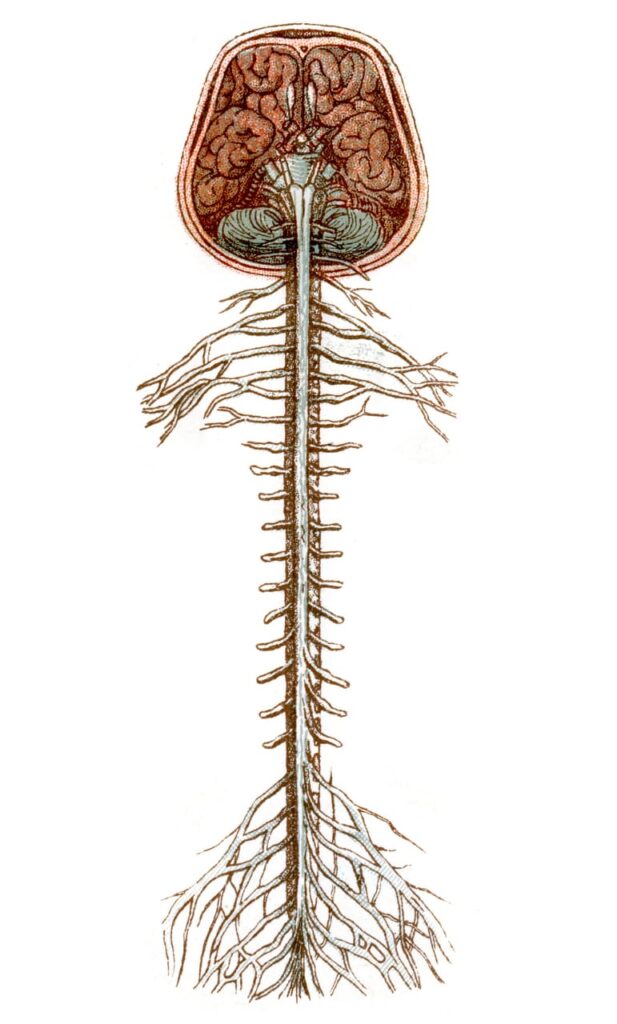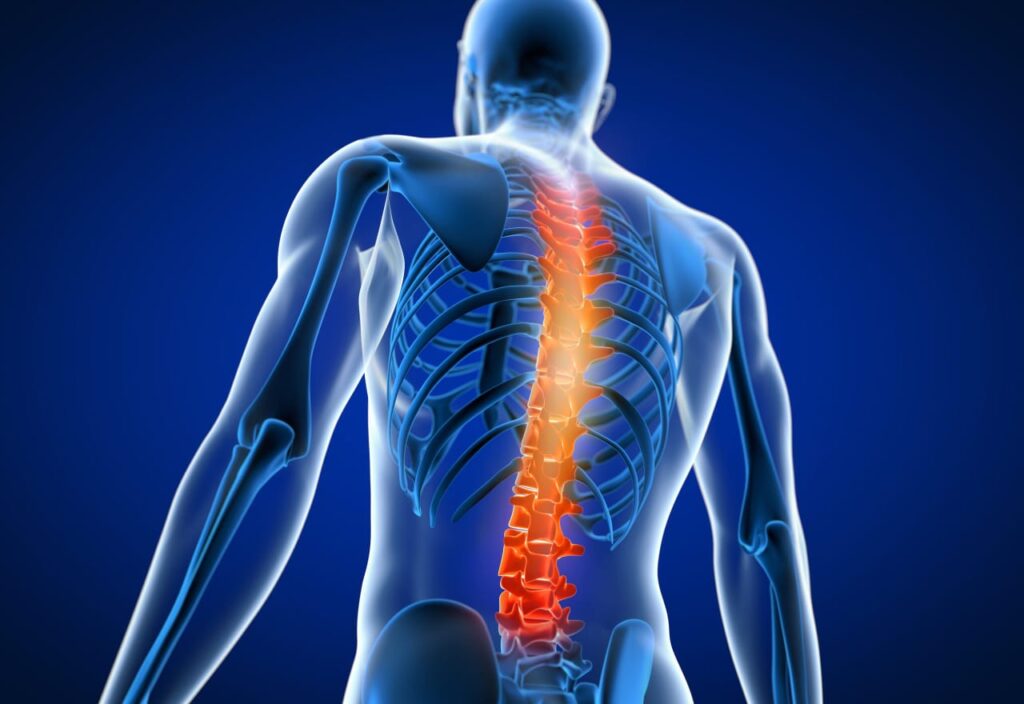

The spinal cord plays several vital functions in the body and is of great importance:
- Information Transmission: The spinal cord serves as a conduit for transmitting sensory information from various body parts to the brain. Nerves from different regions of the body connect to the spinal cord, relaying signals related to touch, pain, temperature, and other sensations.
- Motor Function: It also carries motor signals from the brain to the muscles, enabling voluntary movements and coordinated actions.
- Reflexes: The spinal cord is involved in reflex actions, which are rapid responses to stimuli that do not require conscious processing in the brain. For instance, when you touch something hot, the reflexive action of pulling your hand away happens through the spinal cord.
- Autonomic Nervous System Control: The spinal cord regulates involuntary processes, such as heart rate, digestion, and breathing, through the autonomic nervous system.
- Spinal Reflexes: Apart from reflex actions mentioned earlier, the spinal cord can generate certain reflexes even without input from the brain, known as spinal reflexes. These reflexes provide immediate responses to protect the body from harm.

The spinal cord’s importance lies in its role as a bridge between the body and the brain, facilitating communication and coordination of functions throughout the body. It also plays a crucial role in maintaining homeostasis and ensuring the body responds appropriately to various stimuli. Any damage to the spinal cord can result in significant sensory and motor impairments, underscoring its essential role in our overall functioning and well-being.

VISIT OUR OFFICE : 5TH FLOOR LE-DESIRE COMPLEX, CIRCULAR ROAD ,LALPUR, RANCHI, JHARKHAND
VISIT OUR WEBSITE FOR MORE INFOMATION HTTPS://ETERNALCAREERCLASSES.COM
FOR TEST SERISE, PREVIOUS YEAR QUESTION PAPER OF NEET AND DPP FROM ALL CHAPTERS ARE AVAILABLE ON ETERNAL RANCHI APP.DIRECT DOWNLOAD FROM QR CODE GIVEN BELOW
